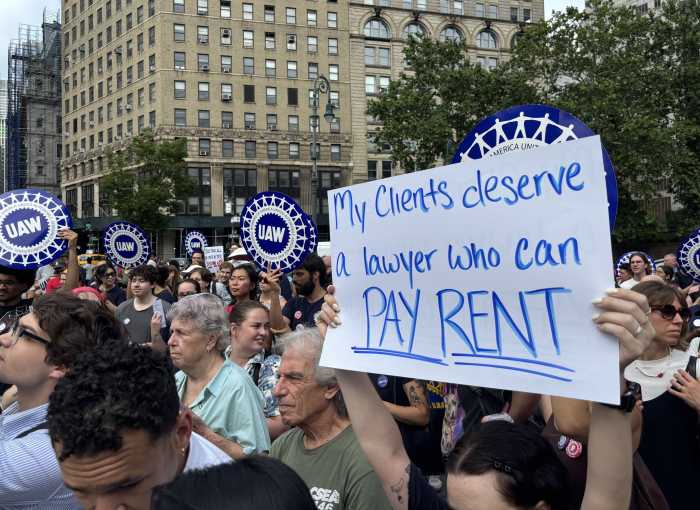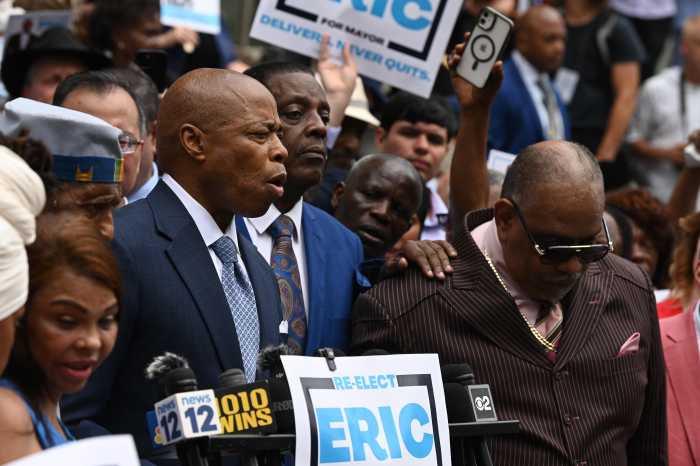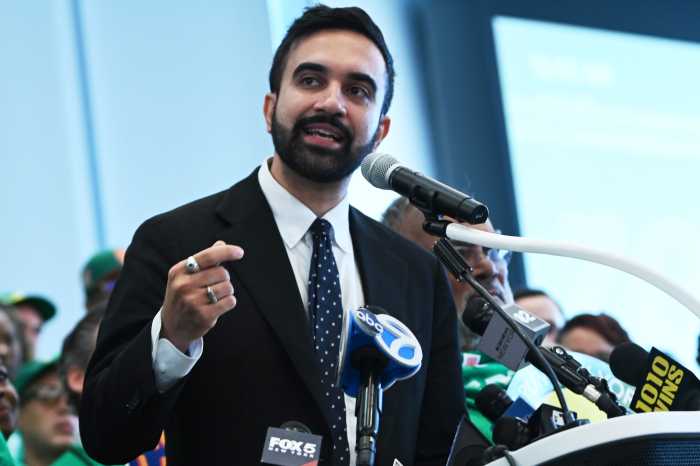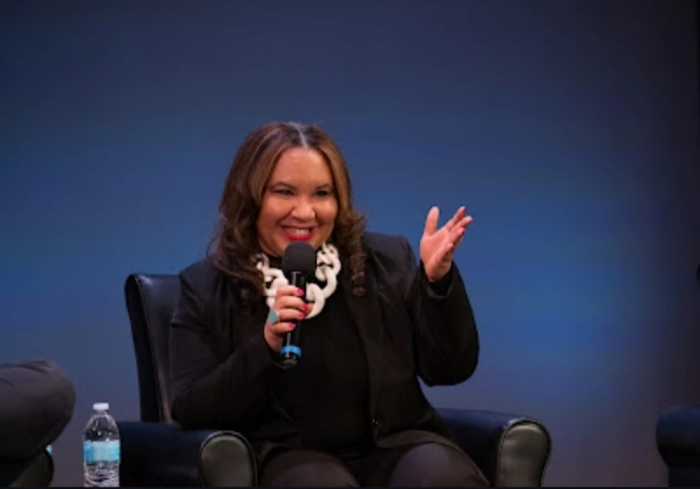
When Jin Park attends the State of the Union address Tuesday night, the first thing he intends to do is “just listen.”
Park, the first Deferred Action for Childhood Arrivals enrollee to receive the Rhodes Scholarship, said he then hopes to elevate the conversation on immigration.
“I want to highlight that access to opportunity shouldn’t be tied to somebody’s immigration status,” Park, 22, said Monday.
Born in South Korea and raised in Flushing from the age of 7, Park was invited to attend President Donald Trump’s address to Congress by Rep. Grace Meng (D-Queens). The congresswoman said the invitation was extended in an effort to raise awareness of how Trump’s immigration policies are negatively affecting DACA enrollees, known as Dreamers.
“Rep. Meng has been my member of Congress for as long as I can remember and I’ve always known her to be a fierce advocate of immigrant communities in New York City and across America,” Park said. “So to be invited as her guest this year is honestly just such an honor.”
As part of the Rhodes Scholarship, Park was expected to continue his education this fall at the University of Oxford in England, but the Harvard University graduate is concerned that he will not be able to return to the United States after his studies because of Trump’s immigration policies and the uncertain future of DACA.
The Obama-era program that protects immigrants who came to the U.S. illegally as children from being deported has been in legal limbo since September 2017, when the Trump administration announced it would rescind the protection. The decision was challenged in court and part of the program remains active for now. However, an Advance Parole provision that allowed DACA enrollees to request approval from the government to leave the country temporarily is no longer available.
Park said he’s now trying to figure out a different legal avenue that would allow him to attend Oxford University and still be able to return home.
“In America, we think that the question, ‘Are you an American?’ we think the answer is whether you have documents to prove it. But to me, I’ve always known that I’m an American,” Park said. “The fact that there’s a possibility where if I pursue a life-changing opportunity to improve the way that immigrants are treated in America and I can’t actually return, that makes me feel . . . that there’s a segment of the population that believes that being an American is tied only to the papers you possess and there’s a lack of recognition of the embeddedness and essentiality of undocumented immigrants to American life.”
Park is just one of 700,000 DACA enrollees whose lives have “hung in limbo” since Trump’s decision to rescind the program’s protection, Meng said.
“It is unconscionable that the president has put their hopes and dreams of a better future in jeopardy, and that includes Jin’s fate as well,” she said in an emailed statement. “It is shameful that Jin may have to abandon this coveted opportunity for a Rhodes Scholarship, an opportunity that he worked tirelessly to achieve.”
And while he doesn’t see himself as a representative of Dreamers as a whole, Park believes his particular experiences as a DACA enrollee often overlap with those of others.
“Some of these experiences include perpetual uncertainty about our future, about whether or not we’ll be able to remain in the U.S., about making some of those crucial life decisions, but also this crippling sense of frustration about the fact that we are American, we know ourselves to be American,” he said. “We are a part of this country and its institutions and its norms, yet not having that be recognized at the highest levels of government.”
Trump will deliver his State of the Union address in the House of Representatives Tuesday at 9 p.m.






























